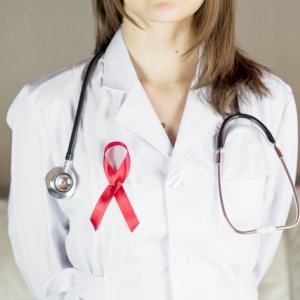Access To Genetics Would Improve Prevention, Treatments

STORY INLINE POST
Q: What added value does Genetics and Health offer to hospital and clinical laboratories, as well as patients?
A: Genetics is a completely different business compared to traditional medicine. Furthermore, geneticists have a significant opportunity to learn how to communicate with doctors and most specialists have no complete knowledge about genetics, which means there is a general lack of understanding of what this science can do for medicine today. When I entered the company in 2017, I realized there needed to be a point of connection between the company and its clients. We decided to build our sales force with doctors who could help their fellow physicians understand our analyses and offer a solution that matched the patient’s needs, an approach that has had great success.
Another advantage Genetics and Health offers is access to genetics tests for the general population. In Mexico, these tests are not covered by most insurance policies and there is almost no access to these solutions in the public sector. This means patients seeking these services must pay out of pocket, thus making genetics tests an option only for the high-income segment. We devised financing alternatives so patients could defer payments for tests that can range from MX$10,500 (US$550) to MX$150,000 (US$7,830). For example, if patients can prove their monthly income is lower than MX$17,000, they can access an interest rate that is three times lower than the average offered by banks.
Q: How can Genetics and Health grow its participation in the public sector?
A: Most of our revenue comes from the private sector, and the high-income population segment in particular, working with high-end hospitals. Having said that, our business model is more geared toward doctors’ offices. All but one of our tests require a sample of dry blood on a piece of paper to perform the analysis. Doctors can do this at their office and just send the sample to us in an envelope, thus avoiding having to send a blood vial to a laboratory for proper storage and shipment.
However, there is a massive opportunity to grow our participation among the low-income population through the public sector. We have already presented a project proposal to the government on how we can address the costliest disease for the government: diabetes. Previously, we approached the Senate to explain the relevance of making genetics tests available to the entire population.
According to global standards, effective breast cancer detection methods must identify 75 percent of all cases on time. However, in Mexico, only 23 percent of the cases are detected in a timely manner, according to the Ministry of Health. The government has invested in CAT scan equipment and prevention campaigns but nothing seems to do the trick. We participated in a roundtable with INCan, the Ministry of Health and other institutions to discuss the role of genetics in early detection of breast cancer, where we highlighted that patients with a genetic mutation linked to breast cancer have a 60-80 percent chance of getting the disease.
Q: What are the main contributions that genetics can make to medicine?
A: Approximately 30 percent of the newborns entering intensive care die because of an improper diagnosis or a lack of a diagnosis. Genetics could help identify genetic illnesses more easily allowing doctors to build a proper treatment strategy for these children. Unfortunately, there are cases when our tests determine there is absolutely nothing to do because the genome combination of the mother and the father is deadly. The situation cannot be reversed but patients do not have to suffer through unnecessary analyses like CAT scans, magnetic resonances or other, more invasive tests.
We have mapped seven different treatments in our OncoPrecision Breast Care genetic panel for breast cancer and based on the metabolic analysis of the patient, we can determine the correct dose and treatment that should be administered to avoid intoxication and ensure efficacy. Our goal is to release a similar panel for prostate cancer in 2019.
























